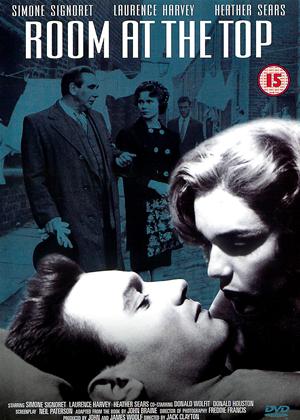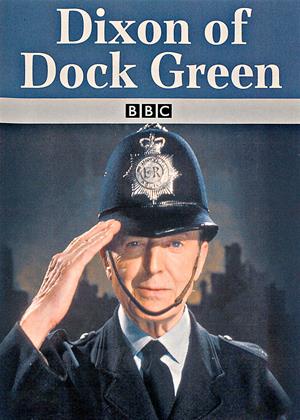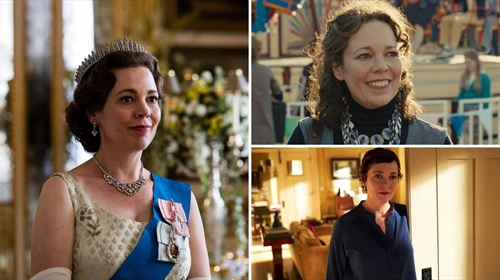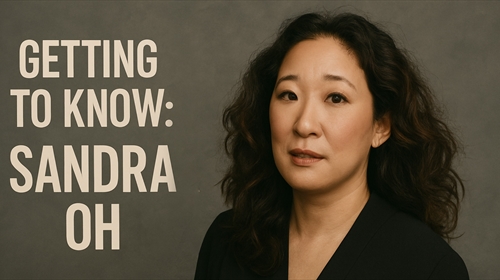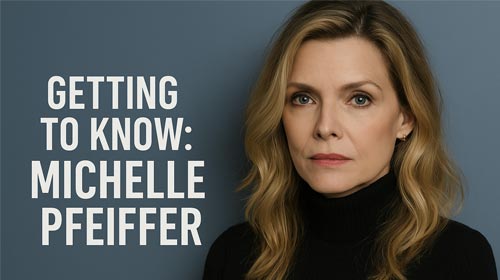As British actor Derren Nesbitt turns 90, Cinema Paradiso celebrates a career full of highlights and surprises.
Most people think of a despicable Nazi when they hear the name Derren Nesbitt. But there's much more to this durable and versatile performer than six minutes in the Schloss Adler.
Natural Born Performer
Derren Michael Horwitz was born on 19 June 1935. As his parents were in show business, he has claimed that he actually made his entrance at the Finsbury Park Empire, where South African siblings Harry and Max Nesbitt were on the bill. Derren's mother had been a chorus girl and she must have been distracted one night when her infant son crawled on to the stage and made a beeline for stand-up legend, Max Miller. 'Max couldn't understand why the audience was laughing,' Nesbitt later told an interviewer, 'then turned round and saw this little thing crawling towards him. "I don't understand," he said. "He's been calling me Daddy all day!"
Regularly joining his father and uncle on stage from the age of five, Derren clearly became addicted to the smell of the greasepaint. But his childhood was blighted by the Second World War and he remembers his mother tossing him into a bush when a Messerschmitt flew overhead. He also recalls the horrors of the Blitz, when he saw a baby's head in a gutter. Nesbitt and younger brother Gary survived, however, unlike their parents' marriage. According to Nesbitt, his mother had once dated Lew Grade, the Russian-born hoofer who billed himself as 'The Dancer With the Humorous Feet' after winning a Charleston competition that had been judged by Fred Astaire.
Grade had wanted to get married, but he bore Harry no ill will at being jilted. Indeed, years later, when Nesbitt visited his mother in her new home in the South of France, she told him that Grade had invited Harry to invest £10,000 in his new venture, the Incorporated Television Company, but he had dithered and missed out on being part of one of the most powerful players in the early days of commercial television.
With irons in many fires, Harry still did well for himself, however. Nesbitt recalls living in a large house on Avenue Road in St John's Wood and driving himself to the Royal Academy of Dramatic Art in his father's Rolls Royce (Harry never got a licence). Albert Finney, Peter O'Toole, and Julian Glover were among his contemporaries. Yet it was Nesbitt who won the prestigious RADA prizes, the Forbes-Robertson and the Kendal awards, for his verse recitation and Shakespearean performances.
Graduating in 1954, he also proved to have another string to his bow. Harry had gone into music publishing and Derren decided he would write the worst song ever. It took 20 minutes to compose 'From Now Until Forever'. Yet it wound up on the B side of Adam Faith's million seller, 'What Do You Want?', which remains (at 98 seconds) the shortest No.1 in UK chart history. Years later, Derren and Gary Nesbitt helped found the Our Price record chain that seemed to have a branch on every high street during the 1980s.
As Seen on Screen
Having briefly been a member of Peter Hall's company at the Oxford Playhouse, Nesbitt alternated between stage and television. He debuted in The Adventures of Sir Lancelot (1956-57), taking various roles before finally being cast as Sir Oringle. Having been Di Lucca in the Renaissance saga, Sword of Freedom (1957), Nesbitt cropped up as Captain Frederick in The Adventures of William Tell (1958) and Spider in The Larkins, either side of a couple of episodes of The Invisible Man (both 1959).
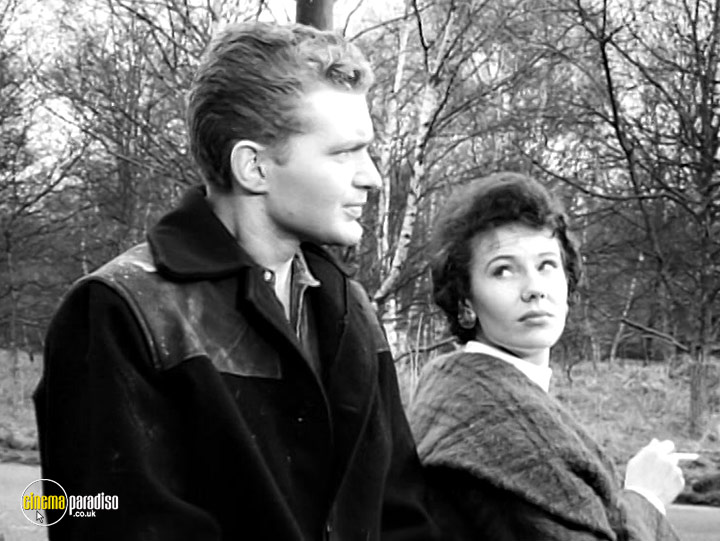
By this time, Nesbitt had found his way into films, setting out to sea as the officer in charge of the security boat in W.F. Fairchild's The Silent Enemy. the stoker holding an oar on one of the RMS Titanic's upturned lifeboats in Roy Ward Baker's A Night to Remember (both 1958), and the radio operator in Douglas Hickox and Eugène Lourié's Behemoth, the Sea Monster (1959). On terra firma, he was a thug fighting on the tow path in Jack Clayton's social realist classic, Room At the Top, before getting his big break as the casual labourer who is mistaken for a convicted child killer in Terry Bishop's Life in Danger (both 1959).
Back on the small screen, Nesbitt guested in various drama showcases before taking the role of Hugo Morelli in Danger Man (1961). He played another of his many menacing foreigners, Polikoff, in an episode of Man of the World (1962), which he followed with Netchideff opposite Roger Moore in The Saint (1963). Having come under suspicion as Brian Thomas in the long-running cop show, Dixon of Dock Green, he settled in for an eight-episode run as Campbell Goffin in Emergency Ward 10 (both 1963).
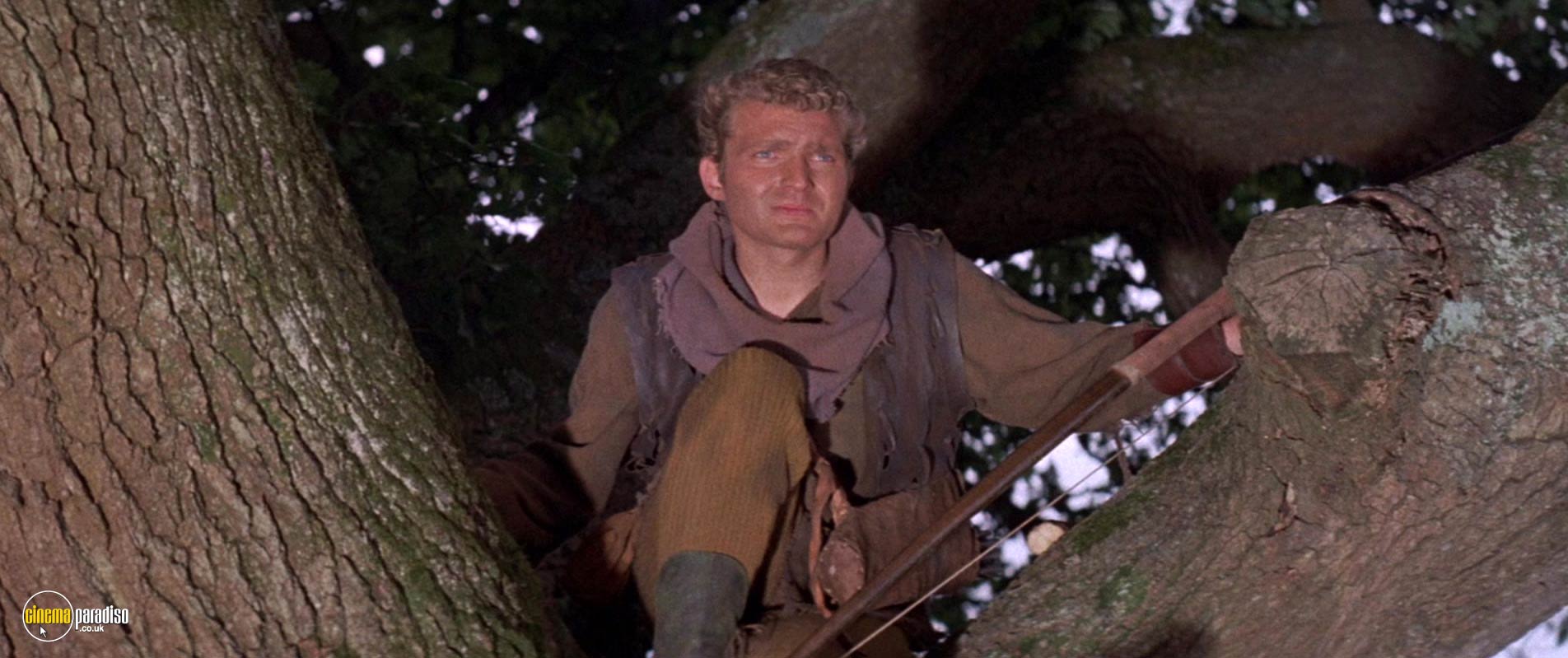
Cinema audiences were now familiar with Nesbitt, who found himself behind bars as Mick in Ken Hughes's In the Nick. But his crimes were committed in a worthier cause as Martin of Eastwood in Terence Fisher's Sword of Sherwood Forest (both 1960). Director Vernon Sewell found ways of suggesting greater depth to Nesbitt's villains, with Tony, the crook who abducts a bookie outside a dog track in The Man in the Back Seat having a sadistic streak that recurred when Nesbitt essayed Sandy, the youth who blackmails closeted gay men like barrister Melville Farr (Dirk Bogarde) in Basil Dearden's Victim (both 1961). By contrast, Sewell gave Griff the gang leader a conscience in Strongroom (1962), which sees him try to rescue the bank manager who has been unintentionally sealed inside a vault with his secretary during a robbery on bank holiday weekend.
Between pictures, Nesbitt stayed busy on television as Tegana in Doctor Who, Stodgey Pine in The Protectors, and Kiley in Public Eye (all 1964). He also played John Benson in Gideon's Way before returning to Danger Man as Rachid Noureddine (both 1965). But cinema was providing some intriguing opportunities. He met first wife Anne Aubrey while making Yugoslav Vladimir Pogacic's Karolina Rijecka (aka Carolina, 1961), a patriotic period piece set in the mid-18th century.
A bit part as a lodger followed in Peter Glenville's Term of Trial (1962), which afforded Nesbitt the opportunity of working with Laurence Olivier and Simone Signoret. His name was misspelt as 'Derrin' in the credits of George Pollock's Kill or Cure (1962), which let him show off his comic chops opposite Terry-Thomas and Eric Sykes. Both of these films should be available on disc in the UK, as should Terence Young's The Amorous Adventures of Moll Flanders (1965), in which Nesbitt and Daniel Massey play the sons of mayor Cecil Parker, who fight over the right to marry Kim Novak. The younger brother prevails, but proves to be a drunken fool, whose death makes Moll a wealthy widow.
This showy turn brought Nesbitt to wider attention. But Cinema Paradiso users should not overlook Ken Annakin's The Informers (1963), in which Nesbitt is chilling as vicious gangster Bertie Hoyle, who kills a police snitch while planning a major robbery. This seething display anticipated the ruthlessness that Nesbitt would summon in the best remembered role of his entire career.
Germans
Germans loom large in Derren Nesbitt's legend. He had played Hans Vogeler in the 1960 'Time to Kill' episode of Danger Man, but made a deeper impression as Fabian, the Great War pilot who takes delight in hearing the birds singing on the morning of what turns out to be his final flight in John Guillermin's The Blue Max (1965). As a consequence, he was cast in Sidney J. Furie's The Naked Runner (1967), as Colonel Hartmann, the bigwig in the East German security services who kidnaps the son of former spy-turned-furniture designer, Sam Laker (Frank Sinatra), to assassinate a potentially talkative agent who has been captured by the KGB.
Sinatra took a shine to Nesbitt and was particularly impressed when he turned down the £20,000-plus that had been offered by a British newspaper for an insight into working with such a major star. as well as any titbits about his relationship with Mia Farrow. As Nesbitt had been disappointed at missing out on a location jaunt to Copenhagen, Sinatra flew the actor and his wife in his private jet for a 10-day holiday in the Danish capital. In addition to putting them up in a luxury apartment, Sinatra also sent a factotum on a daily errand to deliver a manila envelope stuffed with cash so that the Nesbitts could indulge their every whim.
On returning to London, Sinatra invited Nesbitt to dinner at Claridge's before his concert at the Royal Festival Hall. After the show, Ol' Blue Eyes sought Nesbitt's approval and, when he joked that he failed to sing his favourite song, 'To All the Girls I've Loved Before', he gave him a quick refrain before taking his leave. 'He was a lovely man,' Nesbitt later recalled and he would prove to be equally effusive about Elizabeth Taylor, the new best friend he made while on location for his next Germanic assignment.
Adapted from a bestseller by Alistair MacLean, Brian G. Hutton's Where Eagles Dare (1968) is a wonderfully convoluted adventure that sees Major John Smith (Richard Burton) and US Army Ranger Lieutenant Morris Schaffer (Clint Eastwood) lead a hand-picked team into the remote Schloss Adler in order to rescue Brigadier General George Carnaby (Robert Beatty) before the Nazis realise he is not the senior American officer behind a daring invasion plan, but a second-rate actor who has been deliberately planted behind enemy lines. Nesbitt was cast as Sturmbannführer von Hapen, the devious Gestapo commander who has nothing but contempt for his superiors, Waffen-SS colonel Paul Kramer (Anton Diffring) and Wehrmacht general, Julius Rosemeyer (Ferdy Mayne), who has just arrived at the Alpine castle that is only accessible from the nearby village of Werfen by cable car.
Nesbitt had misgivings about the fact that Rosemeyer arrived in a helicopter. as they were not in use in 1942. But such details didn't bother the director ('they'll never know in Arkansas'), who also dismissed Nesbitt's concerns about the authenticity of his uniform. When he pointed out that the SS didn't wear black at this time, Hutton averred that all that mattered was that the costume made him look 'beautiful'. With his hair dyed golden blonde, Nesbitt certainly looked the Aryan part, while his German accent was eerily precise.
Still fretting about the medal ribbons on his chest, Nesbitt made inquiries in the district and a meeting was arranged with a former Gestapo officer. He arrived bearing a bagful of medals that he had been allowed to keep because he had chiselled the swastika out of each award. He explained that Von Hapen's decorations included one for hand-to-hand combat and commended Nesbitt when he saw him in his full regalia. The sight proved less edifying, however, for the baron who ran the Hotel Goldener Hirsch where Nesbitt was staying, as he got the shock of his life at four in the morning, when the actor strode past in his uniform en route to an early call. The bibulous nobleman had required medical treatment because he had been so distressed by the encounter having once been a driver for SS chief, Heinrich Himmler.
On the set, Nesbitt found himself helping Elizabeth Taylor cook fry-ups while her husband - who was drinking four bottles of vodka a day - pulled himself together for the next scene. Richard Burton's task wasn't helped by the fact that Clint Eastwood kept saddling him with his discarded lines of dialogue, as he had got to like playing strong, silent types as the Man With No Name in Sergio Leone's A Fistful of Dollars (1964), For a Few Dollars More (1965), and The Good, the Bad, and the Ugly (1966). Moreover, Nesbitt managed to get himself locked in the cable car while waiting to shoot a scene with Mary Ure and Ingrid Pitt, who were playing undercover agents, Mary Ellison and Heidi Schmidt.
Von Hapen tries to flirt with Mary when she comes to Schloss Adler to work as a maid. However, while treating her to a little Bavarian hospitality in an armaments room that has been converted into a café, he becomes suspicious when she places the cathedral on the wrong side of the square while sharing their memories of Düsseldorf. Already furious that Kramer has prevented him from interrogating the captured British soldiers being held in the Great Hall, the Luger-bearing Von Hapen bursts in to discover Smith and Schaffer clad in Nazi uniforms and holding Rosemeyer and Kramer at gunpoint.
This was Nesbitt's big moment, as he was supposed to challenge the strangers and then take bullets in the head and chest when they caught him off guard. However, things didn't go according to plan. In recalling the incident on stage at Pictureville in Bradford, Nesbitt joked that he started to feel uneasy when he noticed that the special effects bod fitting him with a blood squib was missing a finger. Nobody was unduly concerned when the bag discharged its contents over Nesbitt's tunic without the explosive charge going off to complete the illusion that Von Hapen had been shot in the chest. By the time they reached the last of his five Gestapo jackets without the scene in the can, Hutton was growing twitchy.
Nesbitt takes up the story: 'By this time, I mean blood is everywhere. So I'm standing there and he [Eastwood] goes "Bang! Bang" and it blows a hole from here to here. I mean, it's a 45 and he's bazookaed me! And because I was very careful I moved my head before it all happened, but it still got me in the eyes and there was blood, pieces of material, scratched and all the rest of it. I, of course, was taken to the emergency at Denham Hospital with a huge bandage around this bullet hole. So, here comes an SS officer with a bullet hole in his forehead, a hole in the chest and soaking wet pants, trailing blood everywhere on the hospital floors.' When the medical staff rushed over to help, someone accompanying Nesbitt blurted, 'He's had an accident,' and it took them a while to realise that the problem was the actor's eyes rather than his abdomen.
It took around four weeks for Nesbitt to recover his sight. But he never lost his sense of humour and was delighted when Eastwood sent a Fortnum & Mason fruit basket to the London clinic where he was being treated. In the centre was a bottle of Optrex eye drops.
Clearly, MGM didn't appreciate the fact that Nesbitt had created an iconic character, as he only appears fleetingly in the studio's 'making of'' short, On Location: Where Eagles Dare (1968). However, when Polish artist Piotr Uklanski exhibited 'The Nazis', a 1998 photo-installation of 164 actors playing German troops, Von Hapen was the only figure to appear twice. Not bad for only six and a half minutes of screen time. The film's reviews all mentioned Nesbitt's performance, with co-star Anton Diffring paying him the compliment of quipping, 'You're more German than I am!' However, the Jewish Chronicle felt it was unbecoming for a Jew to play such a vicious thug. When a reporter demanded to know, 'How could you play a German?', Nesbitt calmly replied, 'I do it because I play them very badly.'
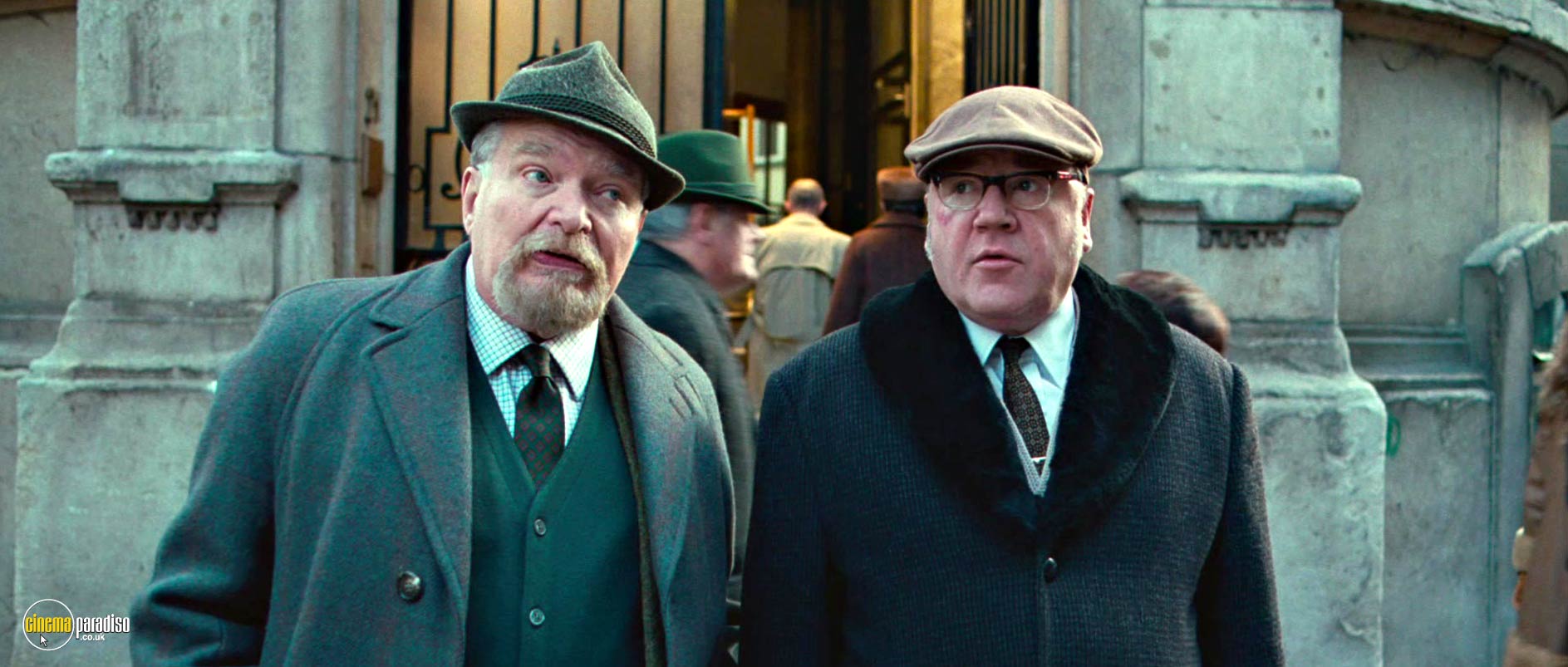
Casting directors must have taken Nesbitt at his word, as he didn't play another German on screen until he agreed to essay the shady Fritz Meyer in Tim Lewiston's The Hot Potato (2011), a lively caper set in 1969 that follows the efforts of East End wrong 'uns Kenny (Ray Winstone) and Danny (Jack Huston), as they venture across Europe seeking a buyer for a box containing a large lump of weapons grade uranium. Even then, Nesbitt wasn't finished with Teutonic dastards, as he was cast as the bomb-making Frederick Winklekopf in Bill Kenwright's 2009 revival of Oscar Wilde's Lord Arthur Savile's Crime, which has been curiously overlooked by film and TV directors since a feted 1960 Armchair Theatre presentation, with Terry-Thomas in the title role and Eric Pohlmann as the fiendish Winkelkopf.
Ups and Downs
Prior to taking the role for which he remains best known, Nesbitt had been jobbing his way through the Swinging Sixties. He had played a crook named Skinner trying to steal a school's valuable bell in David Eady's Operation Third Form (1966), which can be rented from Cinema Paradiso on the BFI's Children's Film Foundation Collection: London Tales (2012). On telly, he was in demand for episodes of several shows that are available on disc. In 1967 alone, he played Fred Chater in Mr Rose, Lanyon in The Troubleshooters, and Lucas Guardino in Man in a Suitcase.
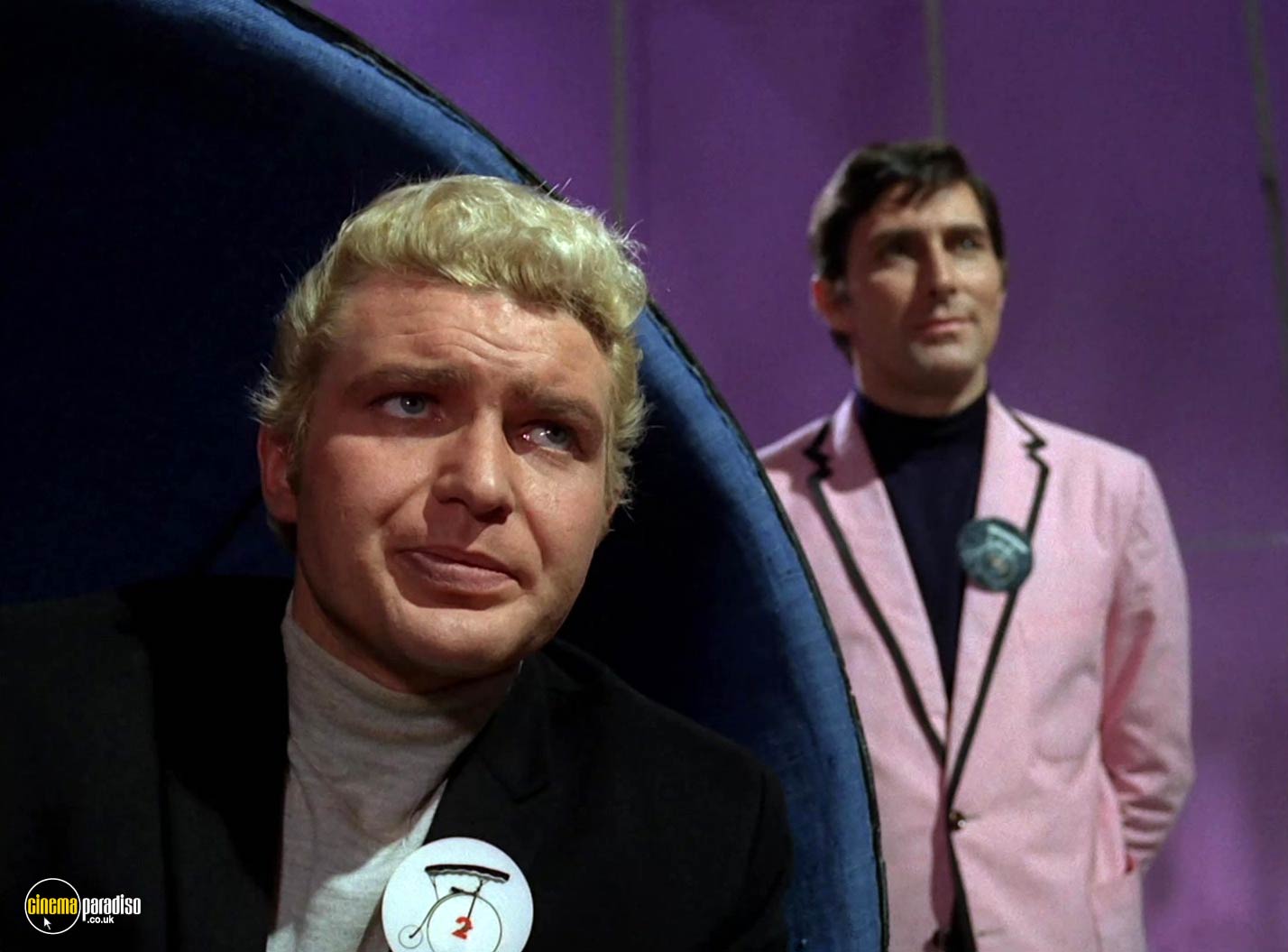
Most notably, he excelled as the new Number Two in 'It's Your Funeral', an episode of The Prisoner (1967), in which Number Six (Patrick McGoohan) has to team with Number Fifty (Annette André) and her watchmaking father (Martin Miller) to thwart an assassination attempt on the outgoing Number Two (André van Gyseghem). Staying on the small-screen, Nesbitt was cast as AI Dowman in Market in Honey Lane (1968) and Nils Paavo in Strange Report (1969) before landing the plum role of Detective Chief Inspector Elliot Jordan in Special Branch (1969-70). Paired with Detective Superintendent Eden (Wensley Pithey) and, subsequently, DS Inman (Fulton Mackay). Jordan tackled 27 cases for the Metropolitan Police's counter-intelligence and counter-terrorism unit. He was eventually replaced by George Sewell, whose DCI Alan Craven butted heads with Roger Rowland's DS Bill North and Patrick Mower's DCI Tom Haggerty before the series lost its slot in the ITV schedule to The Sweeney (1974-78).
A reunion with Roger Moore occurred when Nesbitt played Groski in 'The Old, the New and the Deadly', a 1971 episode of The Persuaders! that saw him strike up a rapport with Tony Curtis, who also liked to work quickly rather than do repeated retakes. Over the next two years, Nesbitt would appear as Brad Huron and Colin Foster in separate episodes of The Protectors (1972-73). But he was off television for a while after being fined £250 after pleading guilty to two charges of assault occasioning actual bodily harm after Anne Aubrey had informed him she was having an affair. He would marry three more times, with his third bride whisking him Down Under for a spell.
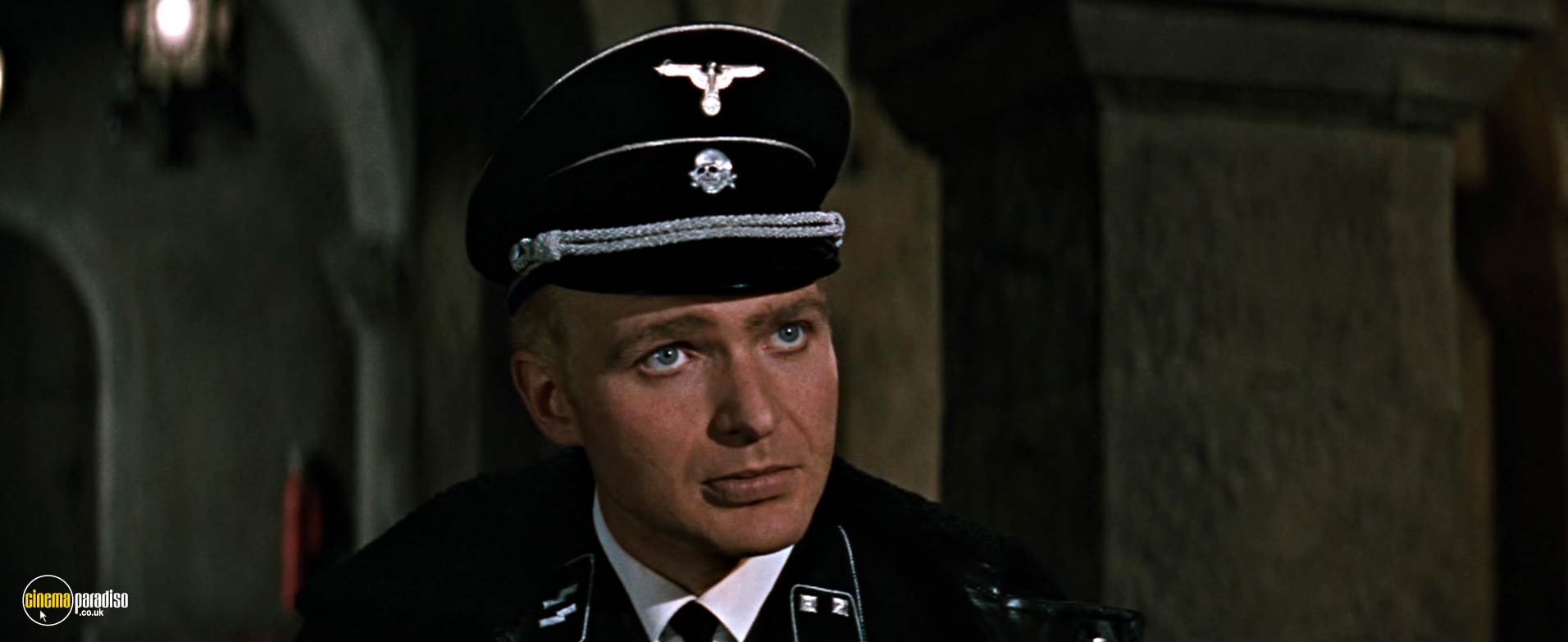
Film offers continued to come, however. Just before making Where Eagles Dare, Nesbitt had played Pallain, the hitman detailed by Maria Cholon (Daliah Lavi) to assassinate Sir James Quentin (Christopher Plummer), Australia's High Commissioner to the UK in Ralph Thomas's thriller, Nobody Runs Forever (1968), which had been adapted from a bestseller by Jon Cleary. But the brush with Hollywood led to Nesbitt cropping up as Waleska in Ken Annakin's all-star caper, Monte Carlo or Bust! (1969), and as Galt in David Lowell Rich's Cold War teleplay, Berlin Affair (1970).
Back in Blighty, he joined forces with Vernon Sewell again to rob graves in 19th-century Edinburgh with Glynn Edwards in Burke & Hare (1971), which co-starred Harry Andrews as Dr Knox and Yootha Joyce as the scheming Mrs Hare. The following year, Nesbitt ducked back into the shadowy world of espionage as Andrew Royce in Peter Collinson's Innocent Bystanders. But his other outing in 1972 saw him break the law for laughs as London mobster Sid Sabbath facing competition from Dick Emery's Charlie Tully in Cliff Owen's Ooh... You Are Awful.
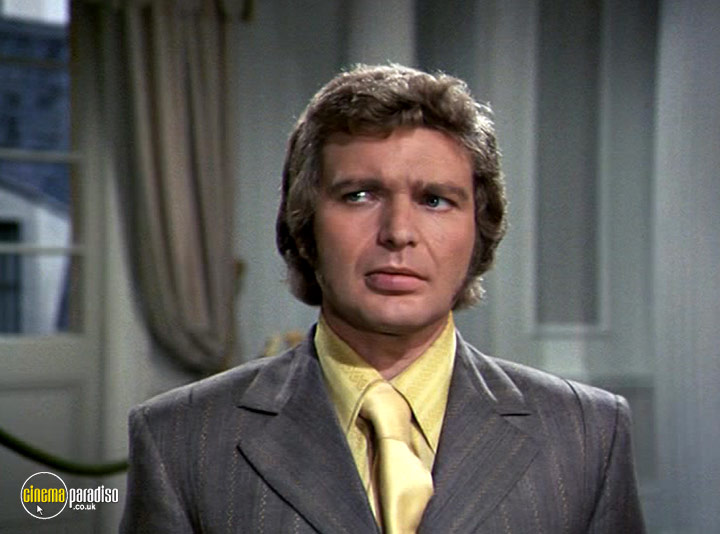
Such saucy comedies did much to keep the British film industry afloat during a troubled period. Softcore romps also paid the bills and Nesbitt readily signed up to play Harry McMichael, the gangster who gets duped by furrier Gilbert Bodley (Leslie Phillips) in Ray Cooney and David Croft's Not Now Darling (1973). Indeed, Nesbitt was so persuaded of the legitimacy of such enterprises that he made his directorial debut with an adaptation of his own novel, The Amorous Milkman (1975), in which he also took a cameo as the milko who replaces the regular (Brendan Price) after he is jailed on a charge of molestation brought by a spurned housewife (Diana Dors). Although he never directed again, the film did brisk business and Nesbitt was lured back into the blue stuff to play Jeremy, the associate of porn magazine publisher Harry Dougan (Alan Lake), in Willy Roe's The Playbirds (1978), which starred Mary Millington, whose sad life is chronicled in Simon Sheridan's documentary, Respectable: The Mary Millington Story (2016).
The TV role of Colonel Craig Collins wound up on the big screen when 'The Man Who Came Back' episode of UFO (1973) was stitched into the feature spin-off, Invasion: UFO (1974). Similarly, Nesbitt's turn as Inspector Lebec in Return of the Saint found its way into The Saint and the Brave Goose (1979). Rounding off the decade, he slipped into East Berlin as spymaster Colonel Stok in Lindsay Shonteff's overlooked take on Len Deighton's Spy Story (1976), which followed on from the Michael Caine/Harry Palmer trilogy of Sidney J. Furie's The Ipcress File (1965), Guy Hamilton's Funeral in Berlin (1966), and Ken Russell's Billion Dollar Brain (1967), in which Stok had been played by Oskar Homolka.
We warn you that this triptych is eminently moreish (don't forget, you can always order extra discs if you need to binge). But we also want to recommend Donovan Winter's Give Us Tomorrow (1978), which sees Ron (Nesbitt) and The Boy (Alan Guy) hold Wendy (Sylvia Syms) hostage in her Orpington abode while her husband robs the bank he manages. This ties in to the erotica mentioned above, as Winter was best known before this home invasion thriller for such sexploitation titles as Some Like It Sexy (1969), Escort Girls (1974), and The Deadly Females (1976).
No Letting Up
Although he made occasional TV-movies like Peter Collinson's The House on Garibaldi Street (1980) and such features as Tony Zarrindast's US-Iranian collaboration, The Guns and the Fury (1981), Nesbitt never really cracked America. But he remained a welcome presence in British offerings like James Kenelm Clarke's Funny Money (1983) and the TV series, Sherlock Holmes and Doctor Watson (1980) and The Chinese Detective (1982).
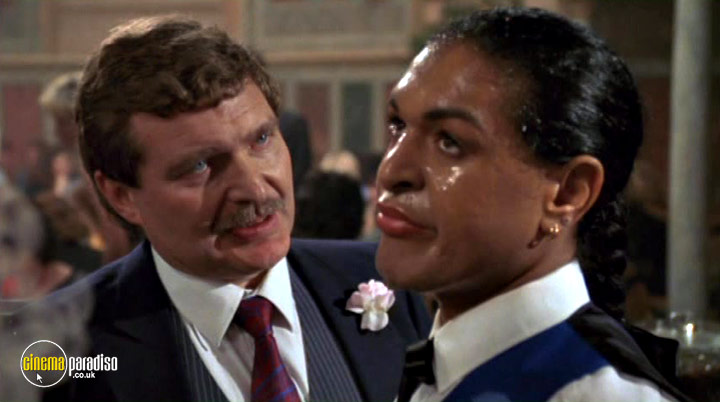
Yet, while crime remained his métier, Nesbitt had always been a dab hand at comedy and he became a fixture on the alternative comedy scene after playing the manager of the exclusive Bastards restaurant in Peter Richardson's Eat the Rich (1987). Indeed, he guested in three episodes of The Comic Strip Presents... (1988-93), as the chauffeur and MacGregor in 'The Strike' (1988), as an aide and Kinnock in 'GLC: The Carnage Continues...', as General Galtieri in 'South Atlantic Raiders, Part Two: Argie Bargie!' (both 1990), and as the Prime Minister in 'Space Virgins From Planet Sex' (1993).
He also got laughs as Inspector Grosse alongside Michael Caine and Roger Moore in Michael Winner's Bullseye! (1990) and as The Minister in Shani S. Grewal's Double X: The Name of the Game (1992), which was the final feature made by Norman Wisdom. Nesbitt even guested on the comedy sketch show, Hale and Pace (1988-98), in 1993, having returned from Australia, where he had played Arthur Corbin in Frank Shields's
Fatal Sky (1990), which was produced by Ozploitation maven Antony I. Ginnane. Unfortunately, it proved to be the first film in Nesbitt's career to go directly to video and it's now virtually impossible to see.
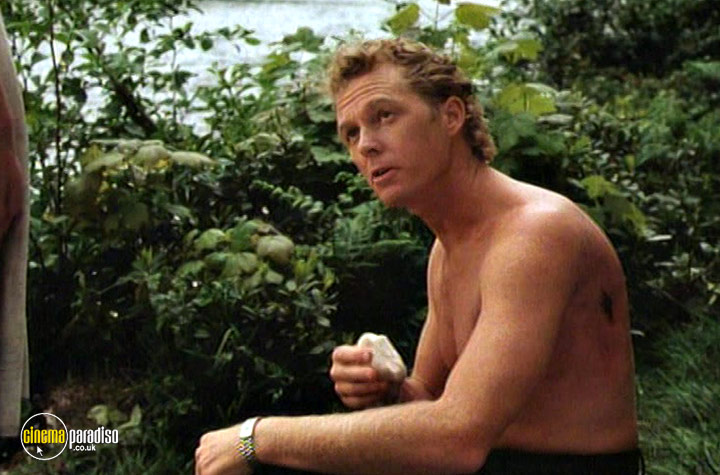
Jersey proved the destination for 'My Name's Sergeant Bergerac', a 1990 episode of Bergerac (1981-91), in which Nesbitt played Dennis Swain. However, he didn't appear on television again until 2004, when he presided over 11 episodes of Phil Redmond's The Courtroom as Judge Arnold Francis. He also went uncredited as Pepsi in Scott Z. Burns's directorial bow, Pu-239 (aka The Half Life of Timofey Berezin, 2006), although he was back on the crawl alongside Michael Caine and Demi Moore in Michael Radford's 1960s heist thriller, Flawless (2007), which sees Nesbitt's Sinclair take drastic action after discovering a robbery at the London Diamond Corporation.
Having cameo'd as a man on a bus in Ray Cooney and John Luton's Run For Your Wife (2012), Nesbitt (who had never played a father on film before) got into the festive mood as Grandad in Jamie Patterson's Home For Christmas (2014). During the shoot, the Brighton-based director showed his star the screenplay for Tucked (2018) and was thrilled when the intrepid octogenarian agreed to play Jack Collins, who refuses to allow terminal cancer to stop him from transforming into Jackie, a drag queen who hopes to build bridges with his estranged daughter, Lily (April Pearson), while helping fellow performer Faith (Jordan Stephens from the hip-hop duo Rizzle Kicks) fight the homophobia to which he's subjected on and off stage.
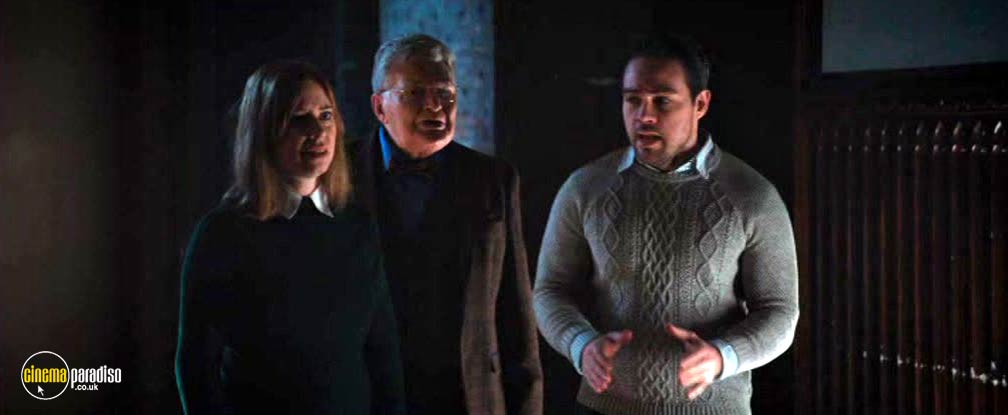
Having survived a serious illness ('I didn't want to die in Darlingon'), Nesbitt remains as busy as ever. He is proud of his connection to the New Era Academy that provides tuition and guidance for budding actors across the world. Moreover, he is still performing himself, playing Hugh Morgan, the historian who shows some American parapsychologists around his spooky Welsh property in Andrew Jones's The Haunting of Margam Castle (2020). With Caroline Munro, Jane Merrow, and Vernon Dobtcheff also in the cast, this is one of a number of Welsh horrors to have been released recently, including Lee Haven Jones's The Feast (2021) and Tony Burke's Protein (2024).
We think you'll agree this is quite a CV for someone who confesses to never having taken his career all that seriously. 'I was never ambitious and I took long holidays,' Nesbitt told one interviewer. 'I didn't need the money, so I treated my work as a well-paid, enjoyable hobby. I always thought enjoying life was more important.' Let's hope he continues to fulfil this enviable goal for many years to come.
-
Life in Danger / Cover Girl Killer (1959)
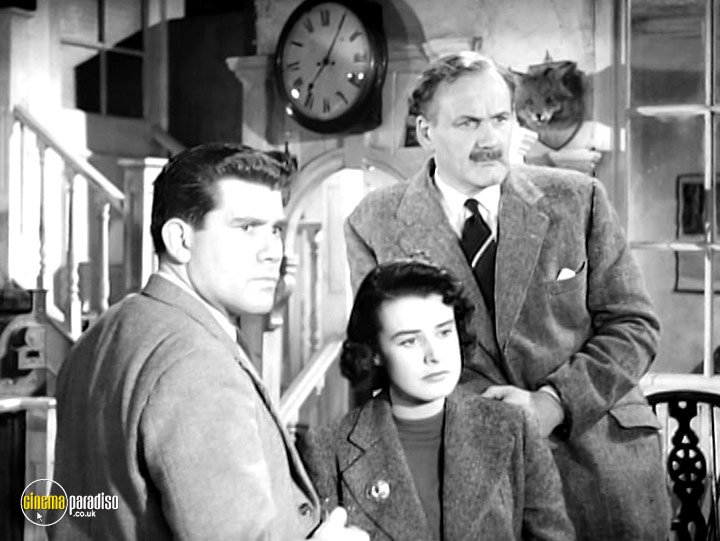 2h 0min2h 0min
2h 0min2h 0minMajor Donald Peters (Howard Marion Crawford) draws the wrong conclusion when a child murderer escapes from prison and emotionally naive teenager Hazel Ashley (Julie Hopkins) goes missing after befriending a stranger (Derren Nesbitt).
- Director:
- Terry Bishop
- Cast:
- Derren Nesbitt, Julie Hopkins, Howard Marion-Crawford
- Genre:
- Thrillers, Drama, Classics
- Formats:
-
-
Strongroom (1962)
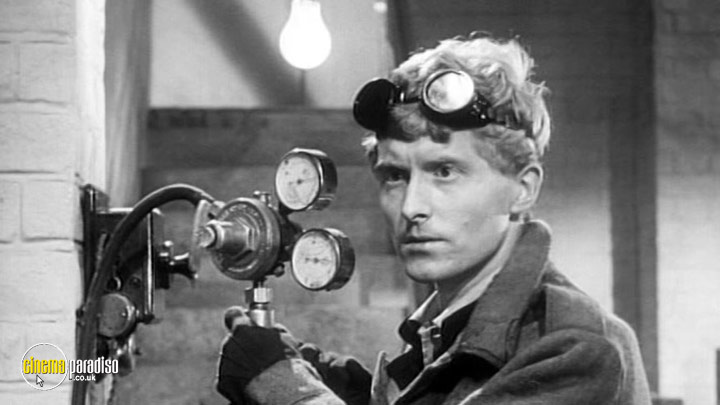 1h 15min1h 15min
1h 15min1h 15minGriff (Nesbitt) and siblings Len (Keith Faulkner) and Alec (W. Morgan Sheppard) think they've pulled off the perfect bank job. But the gang leader's conscience is pricked when he realises that manager Mr Spencer (Colin Gordon) and secretary Rose Taylor (Ann Lynn) have been locked in the airtight vault over a bank holiday weekend.
- Director:
- Vernon Sewell
- Cast:
- Derren Nesbitt, Colin Gordon, Ann Lynn
- Genre:
- Drama
- Formats:
-
-
The Informers (1963)
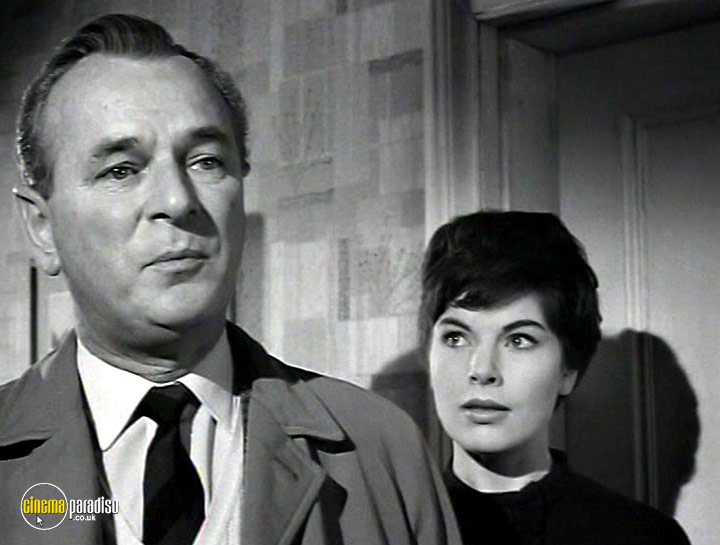 1h 40min1h 40min
1h 40min1h 40minDisobeying orders from Scotland Yard, Chief Inspector John Edward Johnnoe (Nigel Patrick) continues to use snitches to get information. However, bank robber Bertie Hoyle (Derrin Nesbitt) and sidekick Leon Sale (Frank Finlay) show no mercy when they discover that gang member Jim Ruskin (John Cowley) has loose lips.
- Director:
- Ken Annakin
- Cast:
- Nigel Patrick, Margaret Whiting, Katherine Woodville
- Genre:
- Drama
- Formats:
-
-
The Blue Max (1966)
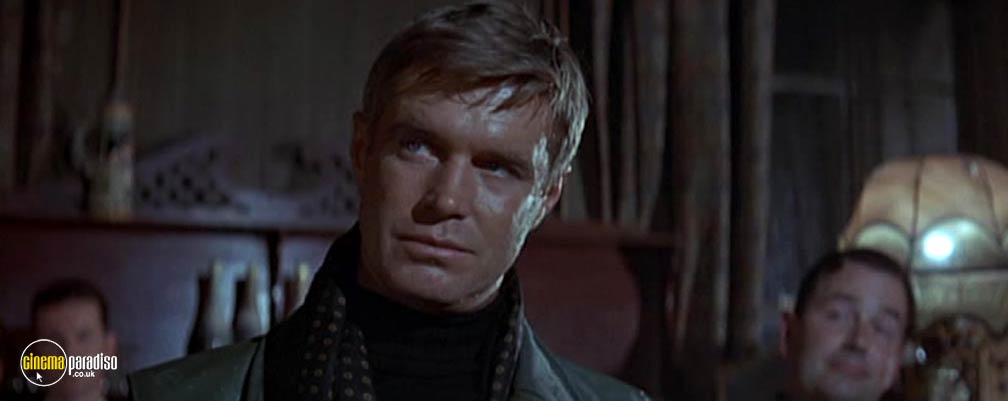 Play trailer2h 29minPlay trailer2h 29min
Play trailer2h 29minPlay trailer2h 29minRookie pilot Bruno Stachel (George Peppard) is so intent on claiming his first kill in the spring of 1918 that he offends colleagues like Oberleutnant Willi von Klugemann (Jeremy Kemp) by failing to mourn the loss of the popular Fabian (Nesbitt) in an dogfight over the Western Front.
- Director:
- John Guillermin
- Cast:
- George Peppard, Nikki Van der Zyl, James Mason
- Genre:
- Drama, Classics, Action & Adventure
- Formats:
-
-
The Prisoner: Series (1967) aka: Nummer 6
 Play trailer14h 10minPlay trailer14h 10min
Play trailer14h 10minPlay trailer14h 10minNumber Six (Patrick McGoohan) is warned by Number Fifty (Annette André) that the outgoing Number Two (André van Gyseghem) is being targeted by his proposed successor (Nesbitt).
- Director:
- Don Chaffey
- Cast:
- Patrick McGoohan, Angelo Muscat, Peter Swanwick
- Genre:
- TV Sci-Fi & Fantasy, TV Dramas, TV Classics, TV Mysteries, TV Action & Adventure
- Formats:
-
-
Where Eagles Dare (1968) aka: Donde las águilas se atreven
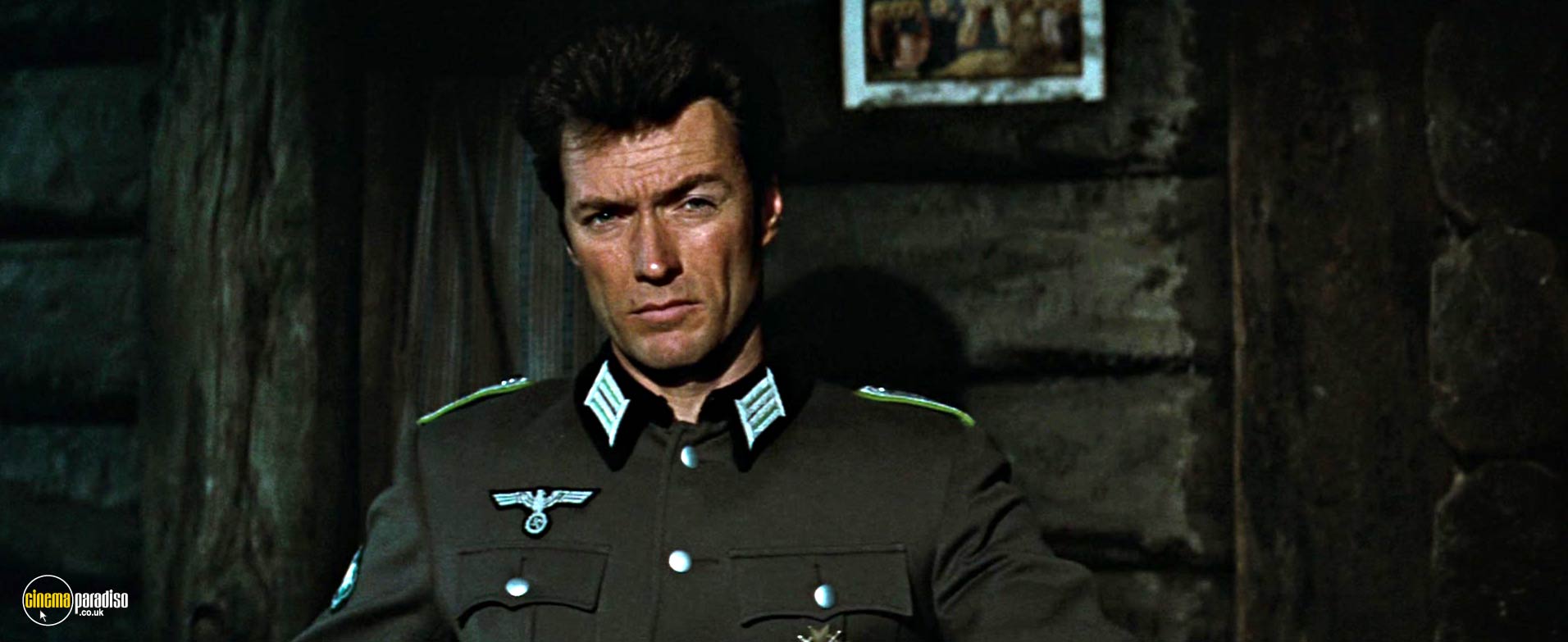 Play trailer2h 29minPlay trailer2h 29min
Play trailer2h 29minPlay trailer2h 29minDestesting and distrusting his superiors at the remote Schloss Adler, Gestapo major Von Hapen (Nesbitt) isn't sure who to trust when he finds them in the Great Hall with Major John Smith (Richard Burton) and Lieutenant Morris Schaffer (Clint Eastwood), who are disguised as German soldiers.
- Director:
- Brian G. Hutton
- Cast:
- Richard Burton, Clint Eastwood, Mary Ure
- Genre:
- Classics, Action & Adventure, Drama
- Formats:
-
-
Special Branch (1969)
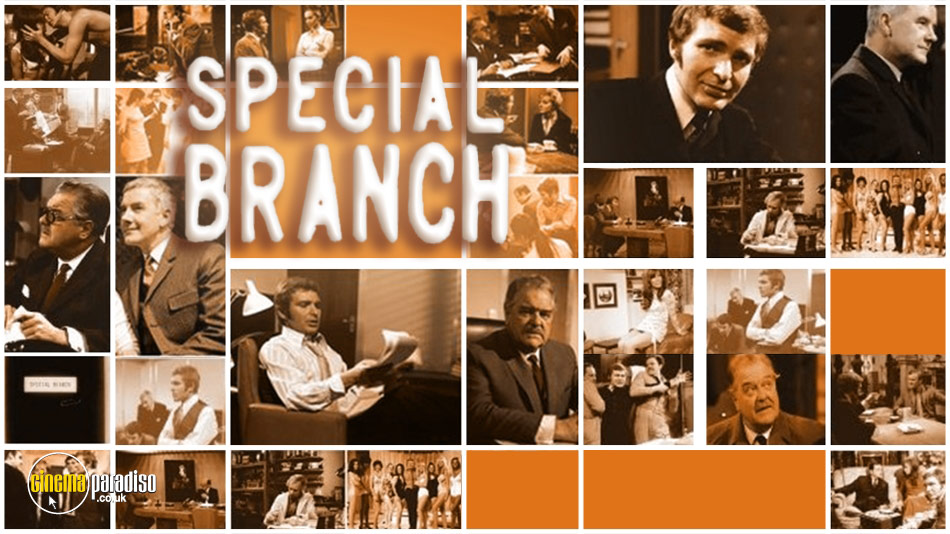 1h 0min1h 0min
1h 0min1h 0minDetective Chief Inspector Elliot Jordan (Nesbitt) is a maverick member of the Metropolitan Police's counter-intelligence and counter-terrorism unit and his methods aren't always appreciated by superiors Detective Superintendent Eden (Wensley Pithey) and DS Inman (Fulton Mackay).
- Director:
- Guy Verney
- Cast:
- George Sewell, Wensley Pithey, Patrick Mower
- Genre:
- TV Dramas, TV Classics, TV Crimes, TV Action & Adventure
- Formats:
-
-
Burke and Hare (1972) aka: Horrors of Burke and Hare / The Bodysnatchers
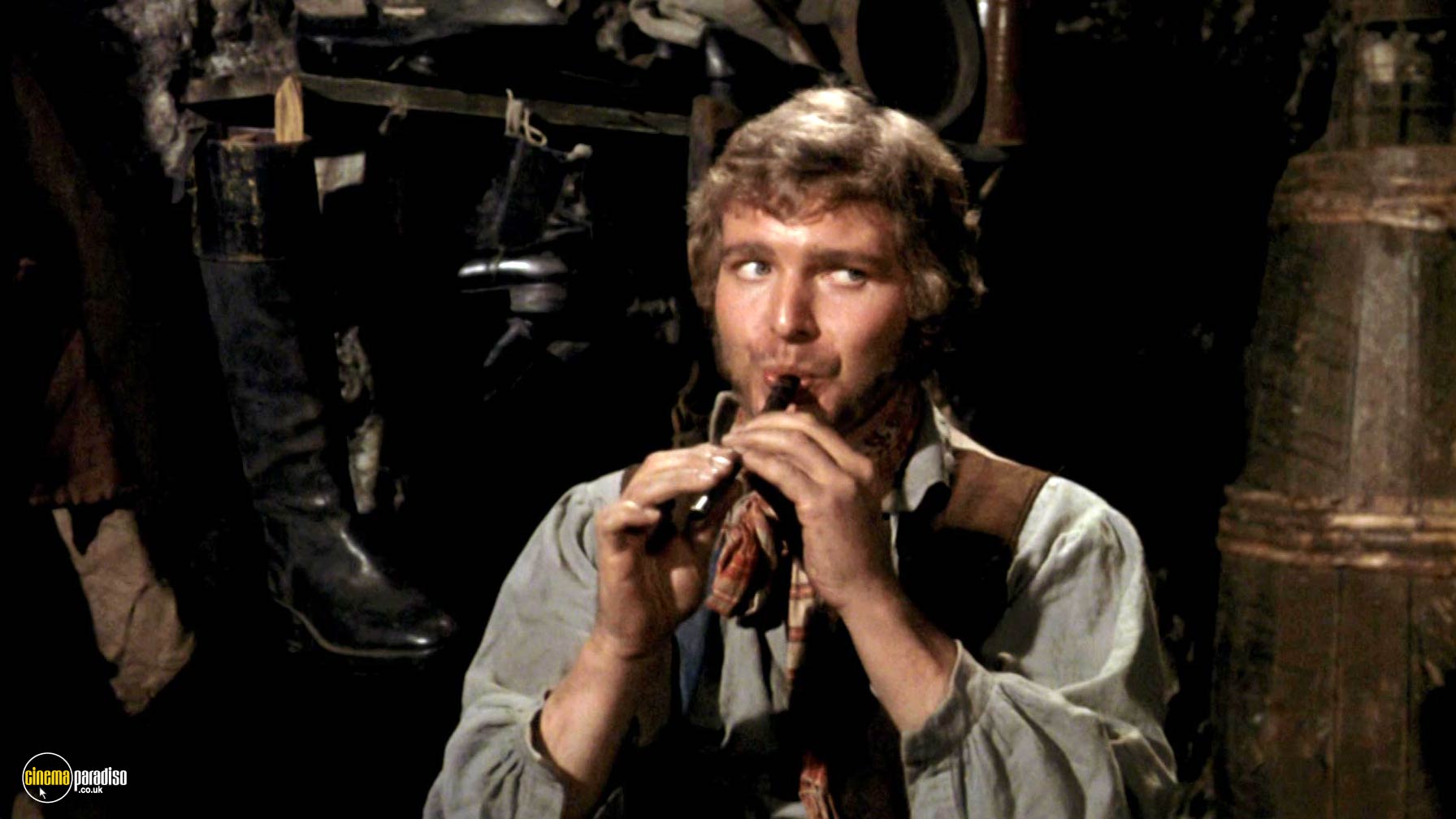 Play trailer1h 30minPlay trailer1h 30min
Play trailer1h 30minPlay trailer1h 30minNeeding fresh cadavers for dissection in 1828 Edinburgh, Dr Robert Knox (Harry Andrews) comes to a sinister arrangement with body snatchers William Burke (Nesbitt) and William Hare (Glynn Edwards), who are abetted by the latter's ghoulish wife (Yootha Joyce).
- Director:
- Vernon Sewell
- Cast:
- Paul Luty, Roy Macready, Derren Nesbitt
- Genre:
- Classics, Horror
- Formats:
-
-
Tucked (2018)
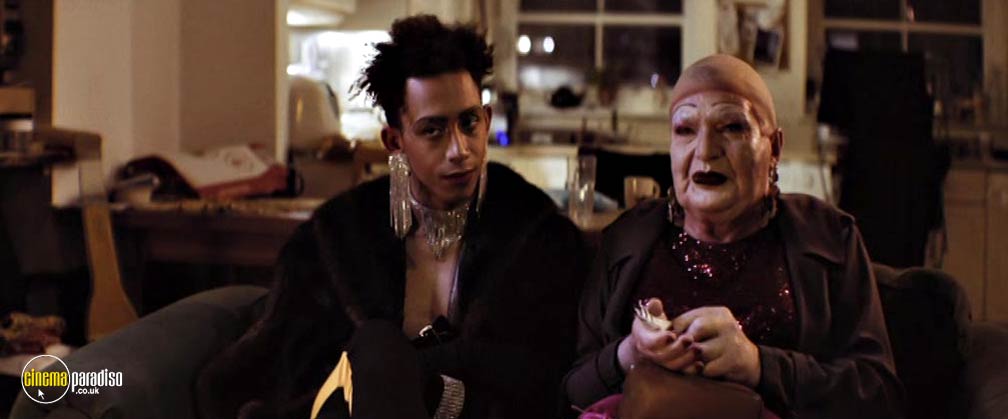 1h 18min1h 18min
1h 18min1h 18minEstranged from his daughter, 80 year-old Jack Collins (Nesbitt) vows to put things right after learning he only has a few weeks left to live. But Lily (April Pearson) finds it difficult to reconcile to the fact that her father is at his happiest when performing as a drag queen named Jackie.
- Director:
- Jamie Patterson
- Cast:
- Derren Nesbitt, Jordan Stephens, April Pearson
- Genre:
- Drama
- Formats:
-
-
The Haunting of Margam Castle (2020)
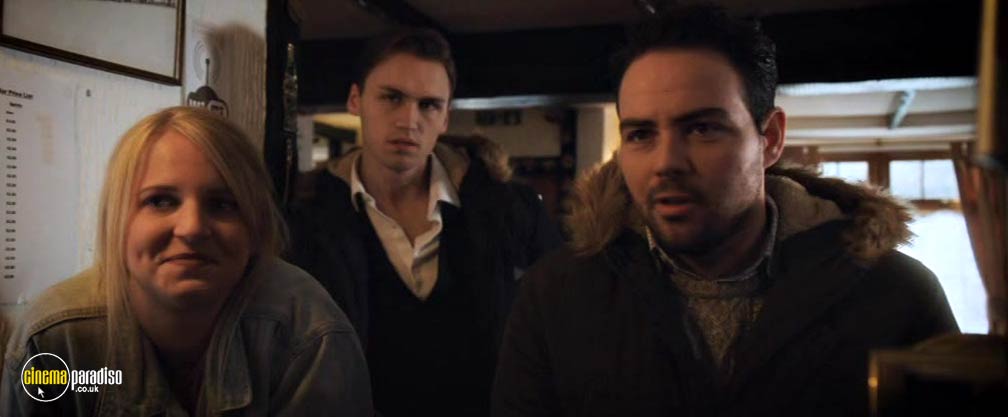 1h 18min1h 18min
1h 18min1h 18minDespite being warned by the local barmaid (Caroline Munro), five American parapsychologists head for a Welsh castle with a terrifying reputation and are greeted by Enos the caretaker (Vernon Dobtcheff), Hugh Morgan the owner (Nesbitt), and Edith (Jane Merrow), a medium who offers to help the visitors make contact with the malevolent spirits who roam the premises.
- Director:
- Andrew Jones
- Cast:
- Caroline Munro, Derren Nesbitt, Jane Merrow
- Genre:
- Drama, Horror
- Formats:
-




